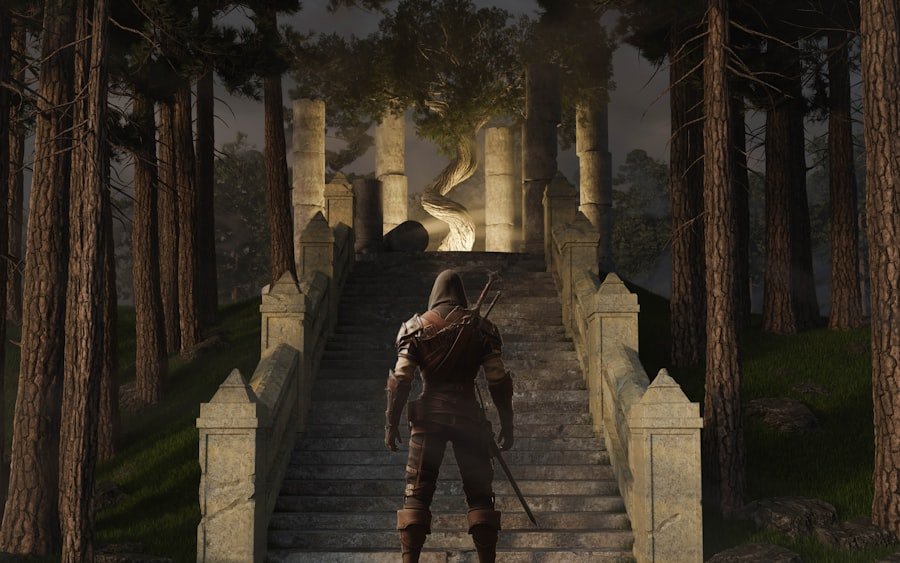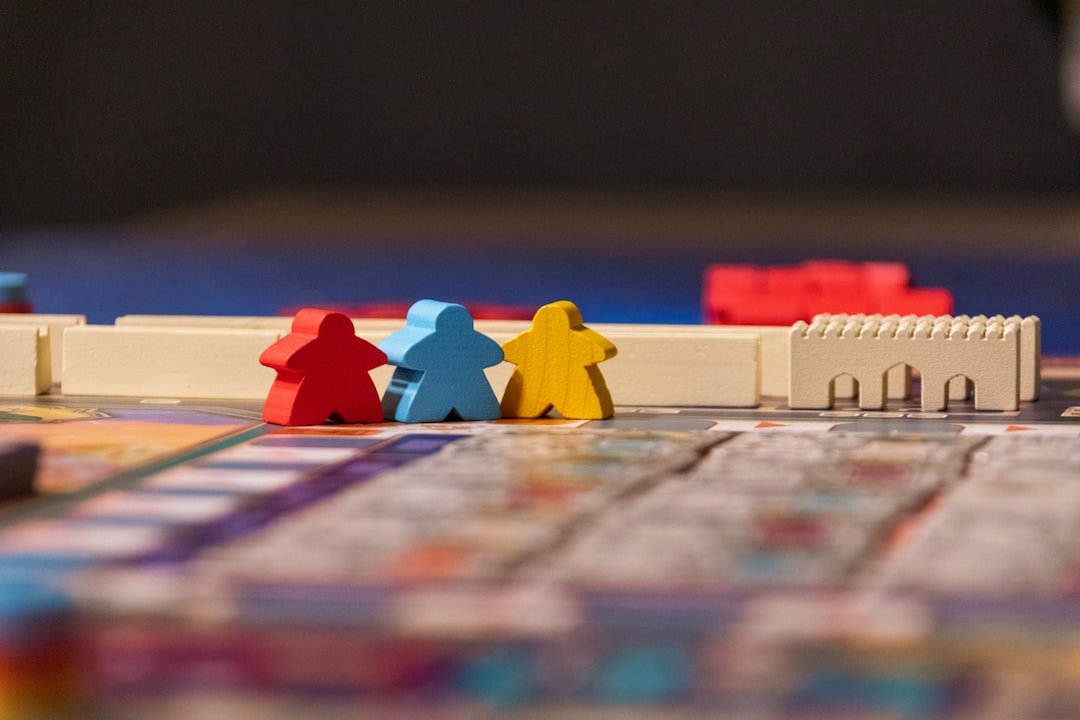Now Reading: Embrace Your Dark Side: Games with Villain Protagonists
-
01
Embrace Your Dark Side: Games with Villain Protagonists
Embrace Your Dark Side: Games with Villain Protagonists

As a gamer, I have often found myself drawn to the darker side of storytelling, where the lines between right and wrong blur, and the protagonists are not the traditional heroes we expect. Villain protagonists have emerged as a fascinating element in video games, allowing players to step into the shoes of characters who operate outside the conventional moral framework. These characters often possess complex motivations, compelling backstories, and a certain charisma that makes them intriguing to play.
The rise of villain protagonists reflects a broader trend in gaming, where narratives are becoming more nuanced and multifaceted, challenging players to engage with moral ambiguity. The allure of villain protagonists lies in their ability to subvert expectations. Instead of embodying the archetypal hero who saves the day, I find myself navigating the murky waters of villainy, exploring motivations that are often rooted in pain, betrayal, or a desire for power.
This shift in perspective not only enriches the gaming experience but also invites players to question their own moral compass. As I delve into the world of villain protagonists, I discover that these characters often mirror real-life complexities, making them relatable despite their nefarious actions.
Key Takeaways
- Villain protagonists offer a unique and complex perspective, challenging traditional notions of heroism.
- Playing as a villain allows gamers to explore darker themes and indulge in morally ambiguous actions.
- Games like “Overlord” and “Prototype” provide players with the opportunity to step into the shoes of a villain protagonist.
- Video games provide a platform for players to make moral choices and explore the consequences of their actions.
- Villain protagonists have evolved from one-dimensional characters to complex and multifaceted personalities, reflecting the changing landscape of gaming.
The Appeal of Playing as a Villain
Playing as a villain offers a unique thrill that is hard to replicate in traditional hero roles. I relish the opportunity to embrace my darker impulses, to unleash chaos and revel in the power that comes with being the antagonist. There’s an undeniable excitement in executing plans that defy societal norms and expectations.
The freedom to act without the constraints of morality allows me to explore a different facet of my personality, one that is often suppressed in everyday life. This exploration can be liberating, as I engage with themes of rebellion and defiance. Moreover, villain protagonists often possess a certain charm or charisma that draws me in.
Characters like Vaas from “Far Cry 3” or Handsome Jack from “Borderlands” are not just evil; they are captivating and memorable. Their wit, intelligence, and complexity make them compelling figures that I can’t help but admire, even as I orchestrate their malevolent deeds. This duality creates a rich narrative experience where I can appreciate the artistry behind their design while also indulging in their darker motivations.
Breaking the Mold: Games with Villain Protagonists

Several games have successfully broken the mold by placing villain protagonists at the forefront of their narratives. Titles like “Grand Theft Auto” and “Bioshock” allow me to inhabit characters whose actions are morally questionable yet undeniably engaging. In “Grand Theft Auto,” I navigate a world filled with crime and corruption, where my choices lead to chaos and mayhem.
The game’s open-world design empowers me to explore this morally ambiguous landscape at my own pace, making each decision feel impactful. “Bioshock,” on the other hand, presents a more philosophical approach to villainy. As I unravel the story of Andrew Ryan and his dystopian vision for Rapture, I am forced to confront my own beliefs about free will and morality.
The game challenges me to consider the consequences of my actions and the nature of power itself. This blend of gameplay and narrative depth creates an experience that transcends mere entertainment, prompting me to reflect on the ethical implications of my choices as a player.
Exploring Morality in Video Games
The exploration of morality in video games has become increasingly sophisticated, particularly with the rise of villain protagonists. As I engage with these characters, I am often faced with moral dilemmas that challenge my preconceived notions of right and wrong. Games like “The Witcher 3” and “Spec Ops: The Line” force me to confront difficult choices that have far-reaching consequences.
In these narratives, morality is not black and white; instead, it exists in shades of gray that require careful consideration. This exploration of morality adds depth to my gaming experience. I find myself reflecting on my decisions long after I’ve put down the controller.
The emotional weight of my choices lingers, prompting me to question not only the motivations of the characters I control but also my own values as a player. This introspection is what makes playing as a villain so compelling; it allows me to grapple with complex ethical questions while immersing myself in a richly crafted narrative.
The Evolution of Villain Protagonists in Gaming
The evolution of villain protagonists in gaming has been marked by a gradual shift towards more complex storytelling. In earlier games, villains were often one-dimensional characters whose motivations were simplistic and easily understood. However, as gaming technology has advanced and narratives have become more intricate, developers have begun to craft villain protagonists with depth and nuance.
Characters like Kratos from “God of War” exemplify this evolution; his journey from vengeful god to a more sympathetic figure showcases how gaming narratives can evolve over time. This evolution reflects broader changes in storytelling across all media. Just as literature and film have embraced antiheroes and morally ambiguous characters, video games have followed suit.
As I engage with these evolving narratives, I appreciate how they mirror societal changes in our understanding of morality and heroism. The complexity of villain protagonists allows for richer storytelling possibilities, inviting me to explore themes of redemption, revenge, and the consequences of one’s actions.
The Role of Player Choice in Villain Protagonist Games

Player choice plays a pivotal role in shaping the experiences I have while playing as a villain protagonist. Many games offer branching narratives that allow me to make decisions that influence the outcome of the story. This interactivity enhances my connection to the character and their motivations, as I am not merely following a predetermined path but actively shaping their journey.
In titles like “Dishonored” or “Mass Effect,” my choices can lead to vastly different endings, reinforcing the idea that my actions have consequences. The freedom to choose how I navigate moral dilemmas adds an extra layer of engagement to my gameplay experience. I find myself weighing options carefully, considering not only the immediate benefits but also the long-term repercussions of my decisions.
This dynamic interplay between player choice and narrative development creates a sense of agency that is both empowering and thought-provoking. It challenges me to think critically about my values and how they align with those of the character I am embodying.
Examining the Psychological Impact of Playing as a Villain
Playing as a villain protagonist can have profound psychological effects on players like me. Engaging with characters who embody darker traits allows for an exploration of emotions that may be suppressed in everyday life. This cathartic release can be liberating; it provides an outlet for feelings of anger or frustration that might otherwise go unexpressed.
However, it also raises questions about empathy and morality—how does embodying a villain affect my perception of right and wrong? Research suggests that playing as a villain can lead to increased aggression or desensitization towards violence in some players. Yet for others, it can foster greater empathy by forcing them to confront uncomfortable truths about human nature.
As I navigate these complex emotional landscapes, I am reminded that gaming is not just about escapism; it is also a medium through which I can explore my own psyche and confront difficult questions about morality and identity.
Villain Protagonists in Different Gaming Genres
Villain protagonists can be found across various gaming genres, each offering unique perspectives on what it means to embody evil or moral ambiguity. In role-playing games (RPGs), for instance, I often encounter characters who blur the lines between heroism and villainy. Titles like “Fallout” allow me to create my own character with choices that can lead down dark paths or noble ones, depending on how I choose to play.
In contrast, action-adventure games often present more defined villain protagonists with clear motivations driving their actions. Games like “Assassin’s Creed” feature characters who operate outside traditional moral boundaries while pursuing personal vendettas or larger goals.
Criticisms and Controversies Surrounding Villain Protagonist Games
Despite their appeal, villain protagonist games are not without criticism and controversy. Some argue that these narratives can glorify violence or promote harmful stereotypes about morality and ethics. As I engage with these characters, I am aware of the potential impact they may have on players’ perceptions of right and wrong.
Critics often raise concerns about desensitization to violence or the normalization of anti-social behavior through gameplay. Moreover, there is an ongoing debate about whether games should allow players to embody characters who commit heinous acts without facing consequences. This raises important questions about accountability within gaming narratives—should players be allowed to act without repercussions?
As I navigate these discussions, I recognize that while playing as a villain can be thrilling, it also comes with responsibilities regarding how these stories are told and received.
The Future of Villain Protagonist Games
Looking ahead, I am excited about the future possibilities for villain protagonist games. As developers continue to push boundaries in storytelling and gameplay mechanics, there is immense potential for creating even more nuanced characters who challenge traditional notions of heroism. With advancements in technology allowing for richer narratives and deeper character development, I anticipate seeing more complex portrayals of villainy that invite players to engage with moral ambiguity on new levels.
There is an opportunity for developers to explore themes such as redemption, trauma, and societal influence on behavior through these characters’ journeys. As I reflect on what lies ahead for villain protagonist games, I am hopeful that they will continue to challenge me as a player while providing thought-provoking commentary on human nature.
Embracing the Complexity of Villain Protagonists in Gaming
In conclusion, embracing villain protagonists in gaming allows me to explore complex narratives that challenge traditional notions of morality and heroism. These characters invite me into their world—a world filled with moral ambiguity where choices matter deeply. As I navigate their journeys, I am reminded that gaming is not just about escapism; it is also an opportunity for introspection and growth.
The evolution of villain protagonists reflects broader changes in storytelling across all media, highlighting our collective desire for more nuanced narratives that resonate with real-life complexities. As I look forward to future developments within this genre, I remain excited about the potential for deeper exploration into what it means to be both human and flawed—an exploration that ultimately enriches my experience as a gamer while prompting me to reflect on my own values and beliefs.
If you’re interested in exploring the psychology behind gaming choices, you may want to check out this article on the reasons why players continue to purchase in-game microtransactions. Understanding the motivations behind these decisions can provide valuable insight into the gaming industry as a whole.
FAQs
What are games that let you play as the villain?
Some popular games that allow players to take on the role of the villain include “Grand Theft Auto V,” “Overlord,” “Infamous,” “Prototype,” and “Dishonored.”
What is the appeal of playing as the villain in games?
Playing as the villain in games can provide a different perspective and allow players to explore their darker side. It can also offer a unique challenge and a break from the traditional hero role.
Do games that let you play as the villain have different gameplay mechanics?
Yes, games that let you play as the villain often have different gameplay mechanics compared to traditional hero-centric games. Players may have access to unique abilities, choices, and storylines that reflect the villainous nature of their character.
Are there any moral implications of playing as the villain in games?
Playing as the villain in games can raise moral implications, as players may be required to make morally questionable decisions and engage in unethical behavior. However, it is important to remember that these actions are fictional and should be approached with a critical mindset.
Can playing as the villain in games affect players’ behavior in real life?
There is ongoing debate about the potential impact of playing as the villain in games on players’ behavior in real life. While some studies suggest a link between violent video games and aggressive behavior, the effects are not definitive and vary from person to person. It is important for players to be mindful of their own reactions and seek a balanced gaming experience.



























